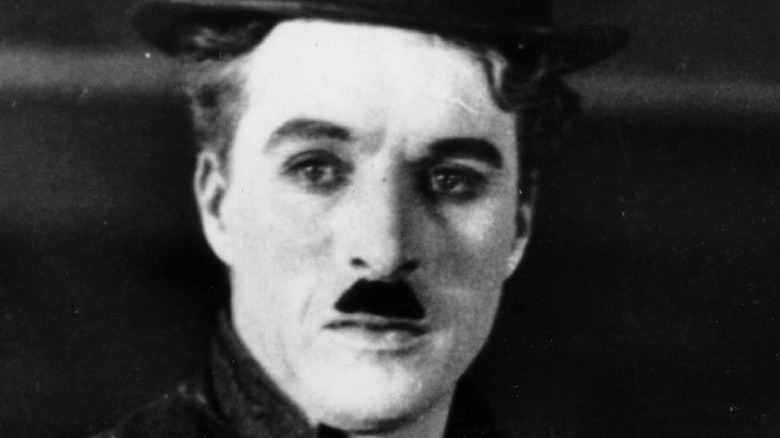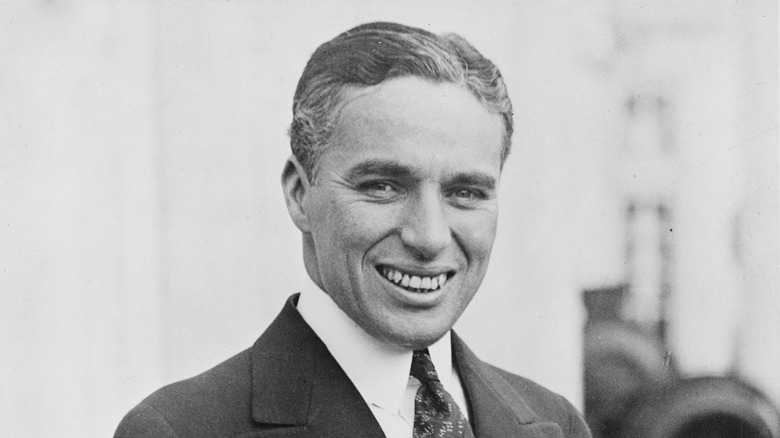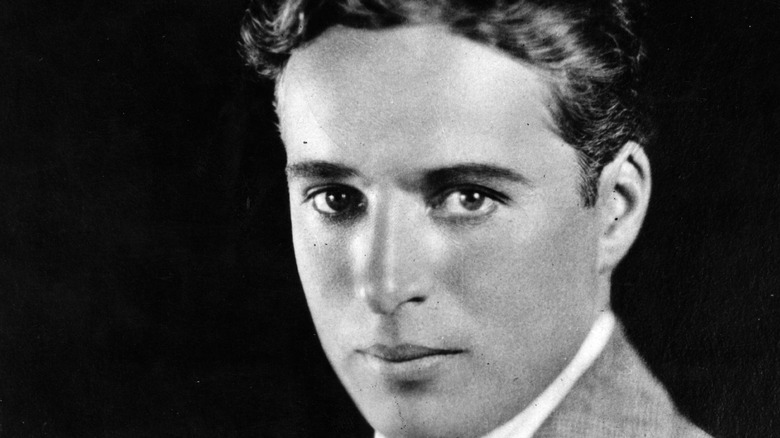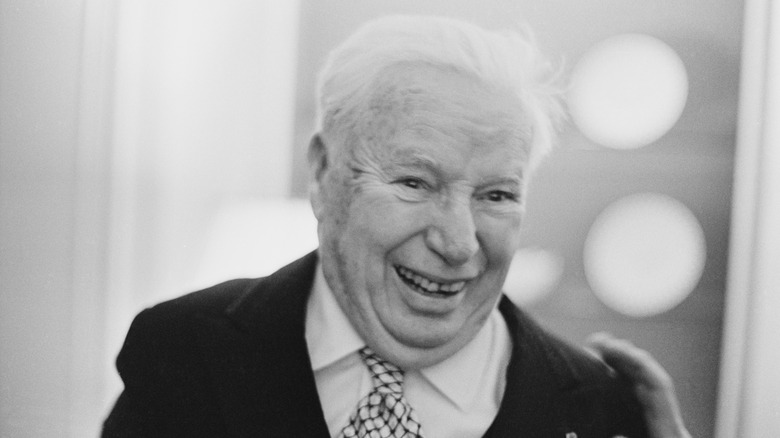The Real Reason Charlie Chaplin Was Once Exiled From The US
These days, it's not uncommon for high-profile individuals in the entertainment industry to use their celebrity status to advocate for causes they believe in, including partisan political causes. As Insider reports, Tom Hanks, Meryl Streep, and Chloë Grace Moretz have all publicly advocated for liberal causes and/or publicly stated their intentions to vote for Democrats. Similarly, according to Oprah Daily, Kid Rock, Kirstie Alley, and Melissa Joan Hart have all at one time or another vocally supported conservative causes and/or Republican politicians.
This is nothing new, however. Decades ago, just as it is now, it was not uncommon for entertainers to publicly take political stances, including sometimes in their films. For Charlie Chaplin, however, the British actor's advocacy, specifically in one film that he made, got him on the wrong side of U.S. authorities keen to root out communism, and he was sent packing, according to History Daily. Even after he was green-lighted to return, he remained in self-imposed exile for two more decades.
Chaplin Gets Caught Up In The Red Scare
Charlie Chaplin, having long established himself as a silent film star, and having successfully made the transition to "talkies," took some time off before World War II to travel around, and during that time, he became concerned about the plight of the poor, according to History Daily. His film, "Modern Times," contained a strong anti-capitalist message, and his next film, "The Dictator," featured a Hitler-like character and strong anti-fascist themes. That got him on the radar of the director of the FBI, J. Edgar Hoover.
After World War II, things in the United States took a dark turn. Though victorious in their quest against the Nazis in Europe and the Japanese in the Pacific, the U.S. faced a new enemy: communism. So keen was the U.S. to identify and deal with — imprison, deport, etc. — any suspected communists that the era became known as the "Red Scare," and many found themselves on the wrong side of U.S. authorities. Chaplin, already having caught the eye of the feds, was one of them.
In 1952, Chaplin was out of the country when he was declared persona non grata in the U.S., according to the Hollywood Reporter and, not being a citizen, he wasn't allowed to return.
But Was It More Than Just His Alleged Communist Sympathies?
Though it was in 1952 that he was officially banned from the United States, Charlie Chaplin had been raising the ire of the country's moral guardians, who were concerned about him being "anti-American" as early as 1917, according to The Guardian. Then there was the matter of his propensity to marry underage girls and then divorce them. As The Daily Beast reports, he'd married and divorced two women who were 16 when they wed, and neither the underage marriages nor the subsequent divorces were well-received in the States. Indeed, by the time another teenage girl, Oona O'Neill, caught his eye, he waited until she was 18 to tie the knot, presumably having learned his lesson.
The case against him was helped along by notorious gossip columnist Hedda Hopper, whose zeal to get Chaplin out of the country caused her to work with Hoover. To push that goal. "Hopper and Hoover collaborated with one another. She gave him evidence that came to her through the gossip grapevine and he gave her information that the FBI wanted to make public. They were united in the goal to destroy Chaplin who they both believed was a dangerously influential Jewish communist," said Karina Longworth, in her podcast.
Chaplin's Self-Imposed Exile Lasted Two Decades
Whether or not Charlie Chaplin was a communist was known only to Chaplin himself. But as The Guardian reports, in a September 1952 press conference Chaplin said that he was simply a man "who wants nothing more for humanity than a roof over every man's head."
Chaplin's expulsion from the U.S. stung the actor. Though he wasn't a citizen, he'd spent 40 years in the country, longer than he spent in his native England, according to the Daily Beast. He moved to Switzerland, sent his wife, Oona, back to L.A. to tie up loose ends (and retrieve an amount of cash he'd buried in the back yard), before she headed back to Europe to be with her husband.
Chaplin had vowed to never set foot in the U.S. again. However, by 1972, cooler heads had prevailed, and Chaplin's ban had been revoked. What's more, the Academy of Motion Picture Arts and Sciences bestowed an award on him, and the actor returned to the U.S. in triumph, as The Hollywood Reporter notes. "It's easy for you but difficult for me to speak tonight, as I feel very emotional. I'm glad to be among so many friends," he said at the time.



